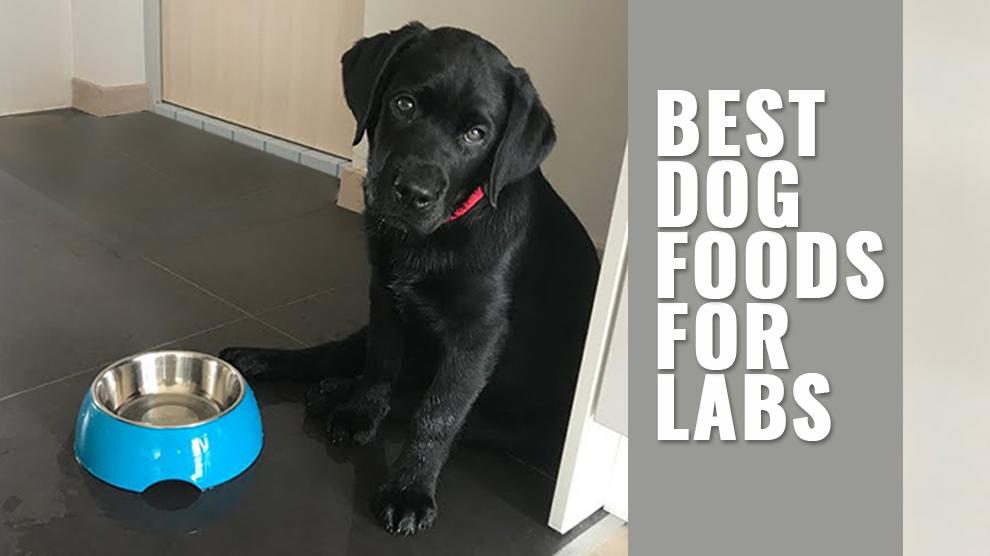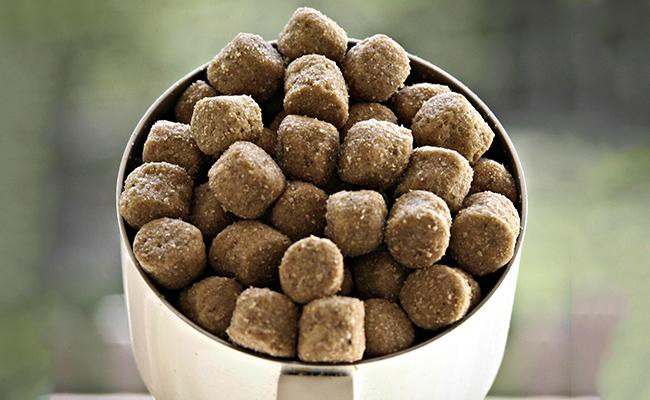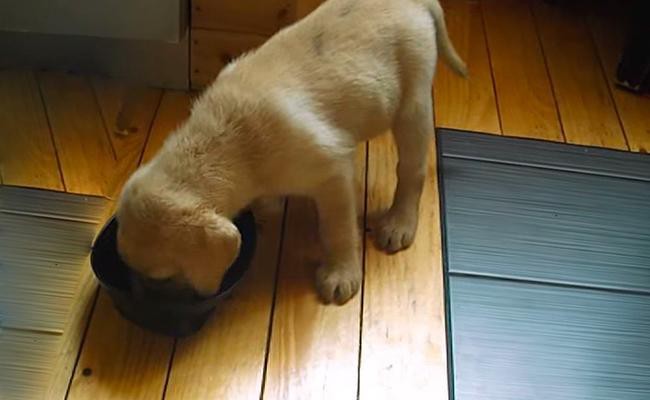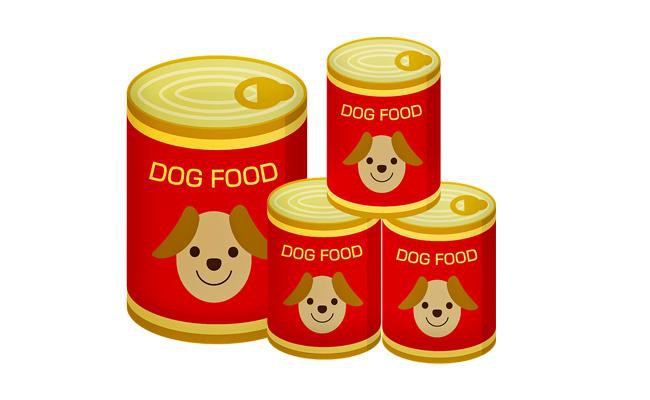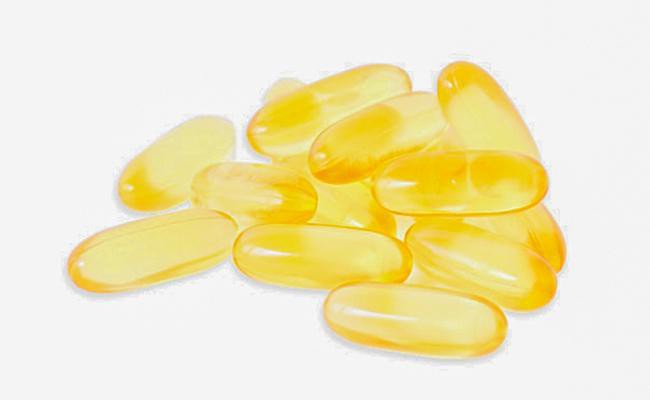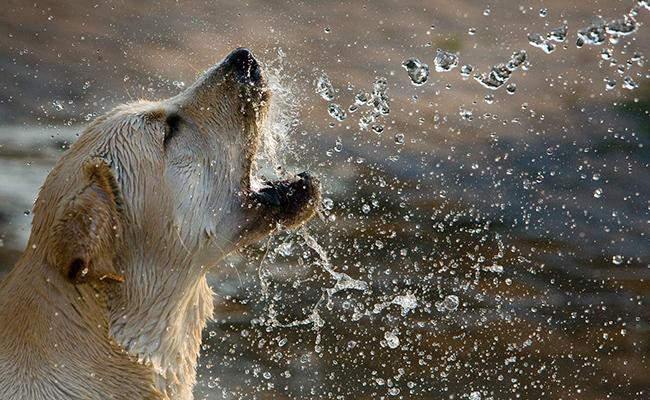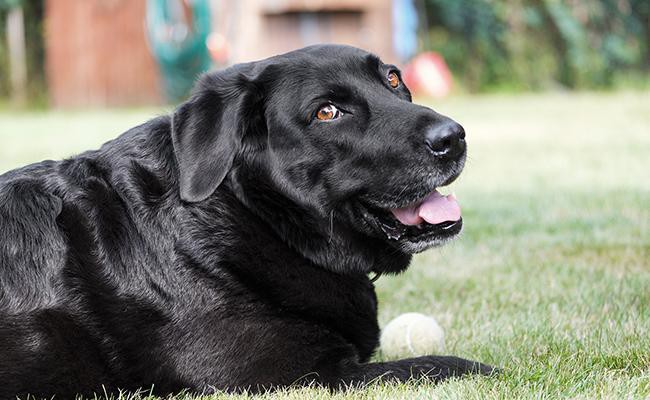- Specific Needs Of Labrador Retriever
- Types Of Dog Food
- Best Food For Labrador Puppies
- Methods Of Feeding Labrador Retriever
- Foods For Diabetic Labs
- Best Dog Foods For Labs With Allergies
- Can I Feed Milk To Adult Labs?
- Feeding Water To Labrador
- Best Dog Foods For An Overweight Labrador
- How Much And How Often To Feed A Labrador?
Dog Pregnancy Calculator And Timeline
Are you looking for the best dog foods for Labs? Then, spend some time for this article.
Before choosing the best food, keep in mind that every dog breed has its specific needs. Also, the amount of food and the time to feed vary with the breed size.
Furthermore, you have to decide on the suitable and healthy foods for your dog even though a lot is available.
Besides, Labrador retrievers are obese, they bloat and may get allergies. Thus, choosing the best food means a lot to them.
In this article, we will tell you about the actual needs of Labrador, the types of best dog food for Labs and feeding methods.
Specific Needs Of Labrador Retriever
Labs need a balanced diet with the right amount of macro and micronutrients to be healthy.
Thus, ensure that the foods for Lab have:
- Moderate amount of fat as they have a tendency to put on weight.
- Moderate to high amount of protein that keeps them energetic and active. Proteins will also keep the muscles healthy.
- Wholesome or free of grains as they may develop food allergies. But, grain-free food is preferable.
Now, look at the different types of available best dog foods for Labs.
Types Of Dog Food
Dog food comes in various types. Some of them
- Raw foods
- Kibble
- Wet foods
- Homemade foods and
- Semi-moist dog foods
Raw foods
One of the expensive dog foods is raw food. It has uncooked meat and bones.
Kibble
The most used food for dogs these days is Kibble or dry food. Kibbles come in packed bags or containers. They come in different shapes (biscuits, flakes, and pellets) as well.
Kibbles have a few benefits
- You can store and feed the dogs for a long time
- Low moisture content
Wet Foods
You can buy wet or canned foods from a supermarket. They are expensive and have a high moisture content.
Homemade Foods
The dog owners prepare these foods at their home keeping in mind the dog’s health. These foods are nutritious but expensive and time-consuming.
Semi-moist Dog Foods
These are like treats for the dog. But, they have fewer nutrients and not suitable for puppies.
Best Food For Labrador Puppies
Puppies are growing pets. So, you have to feed in the little amount in a proper time span.
Also, you should know the best dog foods for Labs and avoid to puppies to prevent health risk.
You can give the below-mentioned food to lab puppies:
- BARF
- Kibble
- Homemade food
- Wet food
Can I Give My Puppy Lab Kibble?
Yes, you can give kibble to your dog. Some breeders and vets consider the best way to feed is kibble.
But, you have to choose the best kibble for your puppy to stay healthy and free from health issues.
Can I Add Other Foods With Kibble?
No. It’s not advisable to add any foods with kibble as this may be harmful to dogs. But, you can feed water to them.
So, it is better to buy the kibble from a reputed manufacturer.
Is Raw Food Suitable For Lab Puppies?
Yes, you can feed raw food to your dog. But, do not switch over the foods.
How Much and How Often Should I Feed My Puppy Lab?
Puppies need a lot of calories and nutrients. As you have to feed often, you must divide the food into portions. If you want to feed him a whole part, he may develop diarrhea.
- 8–12 weeks – Feed him four times a day for every three hours. Feed the night meals two or three hours before his bedtime
- 3 months – Divide the food into three portions
- 6 months – Divide the food into two portions
Can I Give Leftovers to Puppies?
Puppies need a well-balanced diet to stay healthy and grow strong. So, it is not advisable to feed him the leftovers.
Can I Feed Cow Milk to Puppy?
No! Cow milk may lead to diarrhea in Puppies. Also, puppies do not need milk once they grew up (that is more than eight months old).
In case if you have bought a too young puppy (less than two months), call your vet and get advice on better care and feeding. Take your puppy to the vet for the regular checkup as well
What Should I Do If My Puppy Doesn’t Eat the Food?
In general, puppies eat well in a group. But, your puppy may have less or no appetite for initial few days. Thus, you don’t need to worry about this.
However, call your vet if the puppy has not eaten for more than four hours.
Methods Of Feeding Labrador Retriever
You can feed the Labrador retriever in a couple of methods:
- Raw meat and bones (BARF)
- Dry kibble
Can I Feed My Dog, Dry Kibble?
Yes! You can feed dry kibbles to your dog as it has few benefits:
- Easy to serve
- Handy
- No need of refrigeration
By feeding kibbles, your dog will get drawbacks as well:
- Dogs find difficult to digest fillers in kibbles
- Dogs will produce smelly poop and in great quantities
- High risk of bloating and you should clean his teeth daily
Is Raw Meat Convenient to Lab?
No! Raw meat is not as convenient as kibble. Yet, they have few pros:
- It’s a grain-free diet
- Good dental health
- A small quantity of poop and it’s odorless
The cons are:
- Needs Refrigeration
- Hygienic preparation of meat
- Not rich in nutrients
Choosing the Right Method of Feeding
Considering your family members, circumstances and the present lifestyle, you have to choose the right method of feeding.
For example, if your family has young children, it is safer to feed kibble to the lab instead of raw meat as it may contain pathogens harmful to children.
Foods For Diabetic Labs
If your Labrador is having diabetes, you must look for low-calorie and less fatty foods. Also, it is important to ensure that foods having less sugar, carbohydrates, and sodium.
Now, take a quick look at the suitable and must avoidable foods for your diabetic lab:
Suitable Foods
- Dry canned food
- Fiber-rich foods – controlling the sugar levels
- Dry dog foods – complex carbohydrates slow down digestion, minimize the variance in blood glucose levels
- Natural supplements: natural remedies help to maintain sugar levels in your lab. Before feeding natural supplements, it is advisable to consult your vet.
Must Avoid Foods
- Semi-moist foods – contains easily digestible carbohydrates, which lead to hyperglycemia
- Foods having fat
But, fiber-rich foods are recommended generally for overweight dogs.
How Much Should I Feed My Diabetic Lab?
You should feed the diabetic lab in a small amount. Do not feed him a large meal. It is good to feed him two meals of equal size after insulin is injected. If this does not suit him, feed him three to four meals of equal size.
Take your lab to the vet as well to know about the suitable diets for him.
Best Dog Foods For Labs With Allergies
Labs are more prone to allergies as the immune system produces more immunoglobulin E. They are allergenic to few food items, bacteria, flea, ticks, and sometimes by contact.
But, veterinarians state that labs get allergies from food by only 10 percent.
Labs with food allergies have itchy skin, hair loss, skin infections, frequent bowel movements, and ear infections as well.
Thus, you must know what to feed and what not to for labs having food allergies.
So, the best dog foods for labs with allergies include:
- Omega-3 fatty acids
- Healthy Fats
- Flax seeds milled fresh
- Fish oil
- Raw diet having unprocessed vegetables like carrots, beans, and meat
It is better to avoid feeding:
You can also buy some brands of dog foods that offer hypoallergenic formulas from the market.
You have to introduce a new diet to your dog gradually to prevent him from stomach upset.
Can I Feed Milk To Adult Labs?
Adult labs do not need milk. But, many labs enjoy drinking milk as a treat and some do not like.
Sometimes, labs will get nausea or diarrhea after drinking milk.
Thus, you have to know whether milk suits your lab. But, do not feed him milk having a doubt.
Feeding Water To Labrador
Labs, either adults or puppies, need water all times a day. In general, dogs having kibble drink a lot of water, whereas dogs fed raw diet drink less.
It is better to feed water to puppies an hour before his dinner.
Best Dog Foods For An Overweight Labrador
Labradors have a tendency to put on weight. Thus, you have to feed him the right food in the right amount at the right time.
In general, labs may gain weight after neutering. In such cases, you have to alter the feeding habits. But, labs’ weight increases due to overfeeding.
For labs that put on weight due to genetic reasons, a nutritious-rich, balanced, fresh-food diet is suitable. Proper exercise will also help them to maintain weight and stay healthy.
You can also add green beans to your lab’s diet even if you cut down the portions.
Foods to Avoid
If your lab is overweight, you have to cut down a few food items for weight loss. The avoidable foods are:
- Corn
- Soy
- Rice
- Potatoes
- Fillers or snacks
- Any treats as rewards during training
- Kibble rich in grains
- Household scraps
Besides, it is better to consult the vet for altering the food habits of your lab. Also, daily and regular exercise for at least 20 minutes to one hour is important.
How Much And How Often To Feed A Labrador?
As discussed above, you can feed the lab in two ways. But, you must know the best dog foods for Labs and how much you should feed.
- It is not advisable to feed him a large meal at a stretch. Feed him in portions.
- Quantities of dog food vary from brand to brand. You can feed one-third of the recommended dog food to overweight labs.
- You can feed either twice a day or once when he becomes 1 year old.
Whatever feeding method you choose, it is better to feed him once in the morning and once in the evening.

